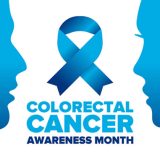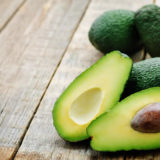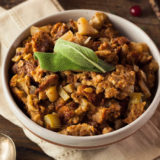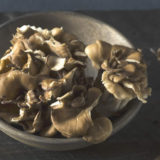Regularly peeking at the bowl’s contents after a bowel movement may not be dinner table conversation – but it can provide insight into your overall health. Thanks in part to daytime television shows tackling formerly taboo subjects on health awareness, an increasing number of people are practicing elimination observation. A common stool color that frequently takes observers by surprise, green hues may seem strange – but are rarely cause for panic.
Paying attention to your body’s output is a smart practice. Noticing a drastically different color, shape or consistency can be a signal that a health issue needs to be addressed. While a short-term stool color change (such as a green or red hue) can easily be attributed to diet, lasting stool color changes might require further investigation.
Due to the presence of bile, poop’s normal color is brown. Made by the liver, concentrated and stored in the gallbladder, and secreted into the intestines to aid in food digestion, bile is the primary stool color determinant.
- When secreted from the gallbladder into the intestines, bile is a dark green, bilirubin-containing liquid.
- As bile travels through the intestines and mixes with fecal matter, it undergoes chemical changes that affect its color.
- When bile progresses from the small intestine to the large intestine via the bile ducts, it progressively changes color from green to yellow to brown.
- In the large intestine, bile-rich stool is metabolized by bacteria creating a byproduct, called stercobilin.
- Stercobilin is what colors stool brown.
At first thought, green seems to be an unnatural stool color; thus, the common alarmed response upon its discovery. However, there are many potential reasons for green poop ranging from completely innocuous, to a digestive imbalance, to an infection. The most common reasons for pooping green, include:
- Eating Greens – Eating a plethora of green, leafy vegetables containing chlorophyll could cause green stool. Even so, a diet rich in green leafy veggies is one of the most healthful ways to eat.
- Eating Dark-Colored Food – Darkly colored food (especially those containing food dyes) can lead to a green end result. Common culprits include purple or blue fruit punch, sports drinks or popsicles, green Jell-O and black licorice.
- Certain Medicines or Vitamins – Certain kinds of medications or vitamins can lead to green poop. Frequent offenders include iron supplements, antibiotics and laxatives. Please note, supplementation with iron is only advised for those specifically deficient in this mineral.
- Decreased Transit Time – Any illness, chronic condition or food sensitivity that causes food to move quickly through the digestive tract can lead to green stool. This is because there is not enough time to produce stercobilin in the colon. Possible reasons for decreased stool transit time include diarrhea, Crohn’s disease, Celiac disease, irritable bowel syndrome, ulcerative colitis, food poisoning, malabsorption or cancer.
- Gastrointestinal Infection – Whether due to a bacterial viral, fungal or protozoal infection, infectious diarrhea may be green. If diarrhea (regardless of the color) continues for a significant amount of time without intervention, the person is at risk of dehydration. To prevent dehydration, make sure to drink plenty of fluids and consult with a doctor if the diarrhea continues for more than a few days.
While the color brown reigns as the most healthful hue for defecation, green does not necessarily indicate a problem. Obviously, green stool resulting from eating spinach or taking a multi-vitamin with iron (if iron deficiency has been diagnosed) is no reason for concern. However, when stool changes color from brown to green – and then stays green for more than a week – it is important to look for other health clues (pain, weight loss, fever, diarrhea) that might indicate a digestive illness or infection and discuss them with your physician.




